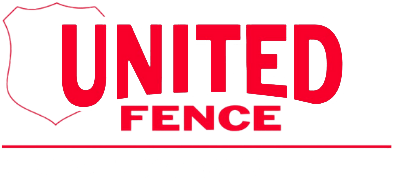You want to install a security fence at your business. Should you use steel or wrought iron?
Whether you’re building it to protect against animals, humans, or the elements, understanding the types of security fencing available is critical before putting up a new barrier.
Steel is widely considered one of the strongest material, providing more consistent security compared to aluminum, its most common alternative. But few business owners, think of wrought iron. When shoring up your property’s defenses, it pays to consider the differences between wrought iron and commercial steel fencing.
Differing Definitions
At its most fundamental, wrought iron is a material that is close to pure iron, containing only a small amount of carbon. Steel, on the other hand, is an alloy of iron with other materials, namely carbon. The carbon makes the material harder and more resistant to a range of damages. Steel can also include other elements, such as:
- Chromium – This further hardens the steel and prevents it from rusting. Steel that contains more than a certain percentage of chromium is known as stainless steel.
- Nickel – Whereas chromium protects steel from rust, nickel shields against acids and heat.
- Molybdenum – Like nickel, this material makes steel more resistant to heat. It also makes it stronger.
- Tungsten – This has roughly the same effect as molybdenum, adding both strength and heat resistance.
- Manganese – This material makes steel more durable, keeping it in good condition for the long haul.
The wide range of materials that can be used to make steel, combined with their effect on its properties, helps explain why it is so much more popular than wrought iron. With steel, you have an array of options for protecting your property, allowing you to tailor your fence to the specific threats against it.
The Difference of Wrought Iron
For all the benefits of commercial steel fencing, wrought iron is still superior for certain purposes. If you plan to include detail work on your fence on your fence, you’ll have trouble making it from steel.
While the material can be easily rolled, cut, and stamped, its hardness makes more detailed modifications an uphill battle. By contrast, wrought iron can be easily shaped in intricate ways, allowing you to incorporate a much wider range of designs while still maintaining a high level of strength and durability.
Using Both Materials
Steel and wrought iron fencing are not mutually exclusive. Many fences use both, making the gate, posts, rails, and pickets out of steel while using iron for the post caps, finial tips, and other accents. In this way, your fence can sport a beautiful and complex design and at the same time provide maximum protection from every manner of outside threat.
From adding beauty to shoring up security to increasing your property values, different types of security fencing can benefit your Arkansas business in multiple ways. For more information on choosing the right material and other fencing topics, contact United Fence & Construction Co. today at 501-222-1503.

